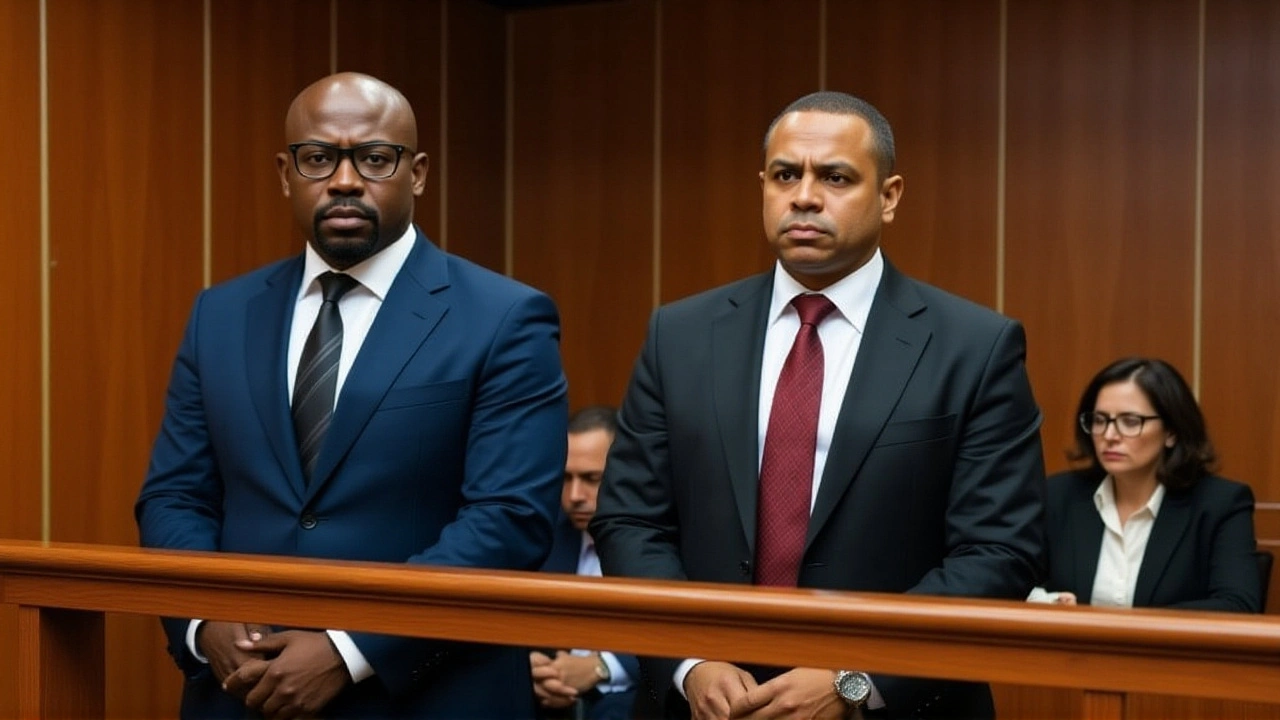
Background: The 2018 rally that sparked a legal firestorm
The July 2018 gathering was meant to be a showcase of the EFF’s growing muscle on the Eastern Cape stage. Video footage that went viral showed Malema hoisting what appeared to be an AK‑47 and pulling the trigger, sending a puff of smoke skyward. The image, broadcast on YouTube and shared millions of times, became an instant symbol of the party’s confrontational flair. While the EFF insists the gun was merely a prop – a starter pistol without live rounds – prosecutors argue the act violated the Firearms Control Act, which forbids discharging any weapon in a built‑up area.
Court proceedings: A timeline of twists and delays
Legal battles began in late 2018, with the state filing charges against Malema and Snyman in the Eastern Cape High Court. Over the next three years, the case ping‑ponged between the High Court and the Regional Court, as both sides filed motions to admit video evidence, call expert ballistics testimony, and challenge the definition of a “firearm” under South African law.
In December 2022, Advocate Nceba Nteleki, representing the State, warned that "the reckless nature of the act, regardless of the weapon’s authenticity, endangers public safety and sets a dangerous precedent for political rallies". The defence, led by senior counsel Hannah Mthembu, countered that live ammunition was never present, citing forensic reports that found no bullet residue on the barrel.
In March 2024, the court imposed a provisional hearing date for judgment, but Magistrate Twanet Olivier postponed it three times, citing the need to review newly submitted expert analyses. As of September 2025, the magistrate announced a further adjournment to allow both parties “additional time to consolidate their arguments”, promising a written decision in the coming weeks.
Reactions on the ground: EFF supporters versus critics
Outside the courthouse, the scene resembled a mini‑concert. Supporters sang liberation songs, waved oversized red flags, and chanted “Malema must go free!”. Notable figures such as Floyd Shivambu, Deputy President of the EFF, stood shoulder‑to‑shoulder with Secretary‑General Marshall Dlamini and National Chairperson Veronica Mente, projecting a united front.
Human rights groups and opposition parties were less enthusiastic. The Democratic Alliance’s spokesperson, Julius Grayson, warned that “political theatrics should never trump public safety”. The ANC’s provincial chair in the Eastern Cape, Lebo Nkosi, called the trial “a test of South Africa’s rule of law”.
Legal implications: What’s at stake for South African politics?
If convicted, Malema could face a fine of up to R1 million or imprisonment for up to five years, as stipulated by Section 47 of the Firearms Control Act. Beyond personal punishment, the case could reshape how South African courts interpret “firearm” in the context of political symbolism.
Legal scholars, such as Professor Thabo Mkhize of the University of Cape Town, note that a verdict upholding the charges would signal a stricter stance on public safety, potentially curbing future political stunts involving weapons. Conversely, an acquittal could embolden other leaders to adopt similar theatrics, arguing “artistic expression” as a defence.
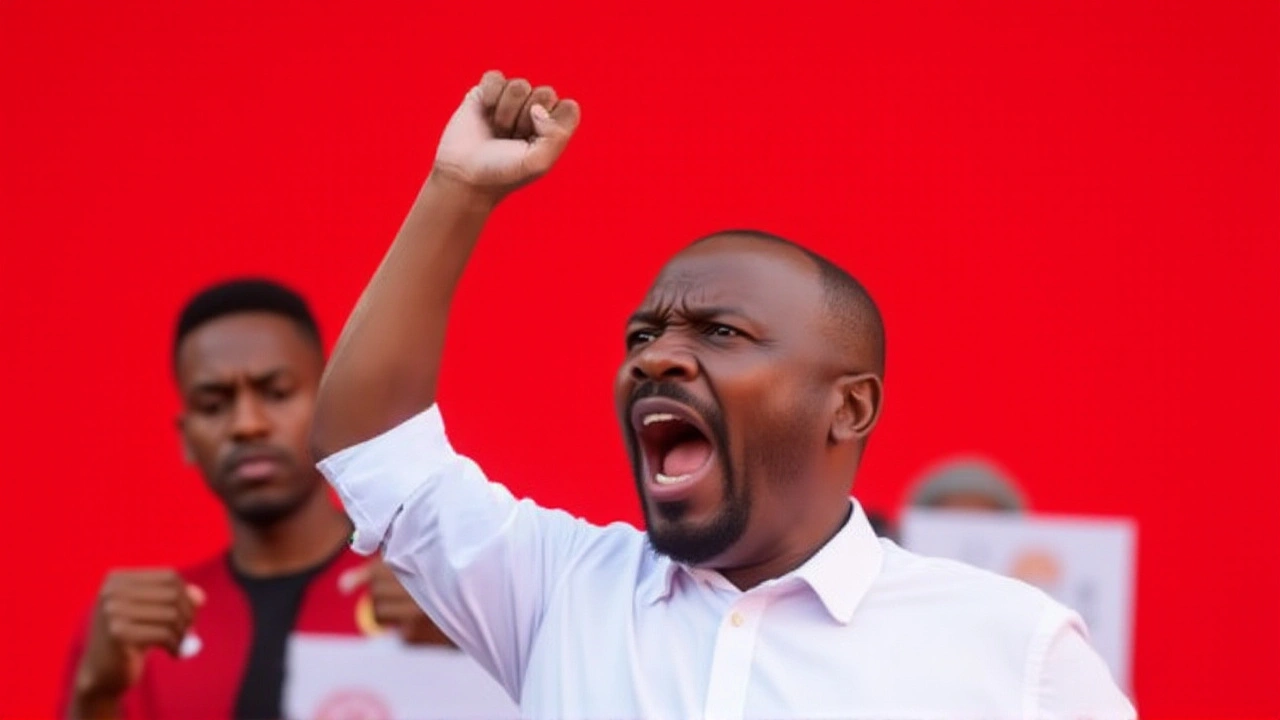
Future outlook: How the judgment could reshape the EFF’s fortunes
The timing of the decision is critical. South Africa is gearing up for the 2026 local elections, and the EFF is positioning itself as the radical alternative to the ANC‑led government. A conviction could dent the party’s momentum, especially if Malema is barred from holding public office for a period.
Inside the party, senior figures are already plotting contingencies. In a private briefing attended by Shivambu and Dlamini, the strategy was clear: “If Julius is sentenced, we amplify the narrative of political persecution and rally the base around the theme of ‘justice for the oppressed’,” an insider reported.
Historical context: From youth league firebrand to national figure
Malema’s journey began in the African National Congress Youth League, where he served as president before being expelled in 2012 for “insubordination”. He founded the EFF in 2013, promising land expropriation without compensation and nationalisation of key industries. Since then, the party has grown from a fringe movement to the third‑largest force in Parliament, holding 44 seats after the 2019 elections.
That meteoric rise has not been without controversy. Past incidents – such as the 2015 “gun march” in Johannesburg and the 2020 “chopper stunt” in Durban – have repeatedly put Malema at odds with law‑enforcement agencies. The current trial, however, is the first to reach a potential sentencing stage.
Key facts
- Defendant: Julius Malema, EFF Commander‑in‑Chief.
- Co‑accused: Adriaan Snyman.
- Charges: Unlawful discharge of a firearm in a built‑up area (Firearms Control Act 60 of 2000).
- Incident date: July 26, 2018, at Sisa Dukashe Stadium, Mdantsane.
- Potential penalty: Up to five years’ imprisonment or a fine of R1 million.
Frequently Asked Questions
What could happen to Julius Malema if he is found guilty?
A conviction under the Firearms Control Act could carry a maximum sentence of five years in prison or a fine of up to R1 million. The ruling could also bar him from holding public office for a period, severely limiting the EFF’s leadership options ahead of the 2026 elections.
Why does the case matter beyond the EFF?
The trial tests how South African law treats political theatrics involving weapons. A precedent that upholds the charges could tighten enforcement of the Firearms Control Act at public gatherings, influencing all parties' conduct during rallies.
Who are the key figures supporting Malema at the courtroom?
Deputy President Floyd Shivambu, Secretary‑General Marshall Dlamini and National Chairperson Veronica Mente were visibly present, alongside dozens of ordinary supporters from across the Eastern Cape.
What was the defence’s main argument?
The defence contended that the weapon was a replica or starter pistol that could not fire live ammunition, claiming the incident was a staged performance meant to energise supporters, not a criminal act.
When is a new judgment date expected?
Magistrate Twanet Olivier said a written decision would be issued within the next few weeks, with the exact date to be communicated to both the prosecution and defence teams.
12 Comments
Write a comment
More Articles
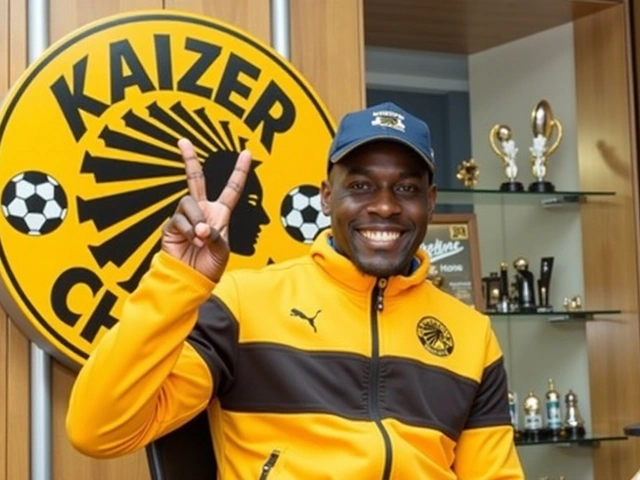
Kaizer Chiefs Enhance Team Dynamics with Cedric Kaze as New Assistant Coach
Kaizer Chiefs has brought on Cedric Kaze as the new assistant coach to strengthen their technical team following Fernando da Cruz's exit. Kaze, a Burundian, has a proven track record with the team's head coach, Nasreddine Nabi, from their tenure at Young African in the Tanzanian Premier League. This appointment is poised to streamline coaching duties and improve communication within the club, potentially benefiting the team's performance and efficiency.
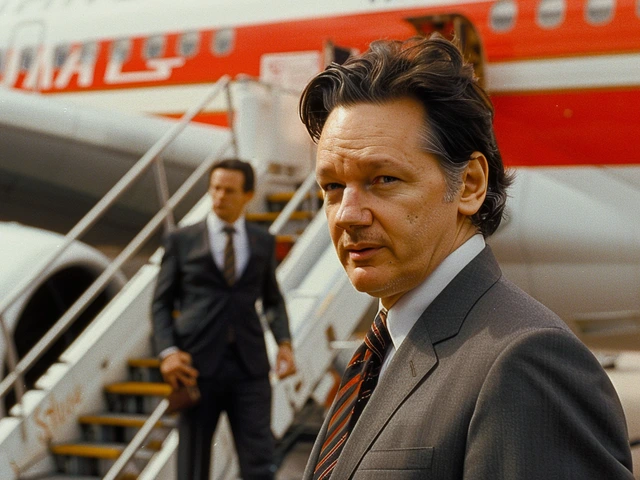
Julian Assange Seeks Freedom by Pleading Guilty in Saipan Court
Julian Assange is set to plead guilty in a U.S. district court located on Saipan, part of the Northern Mariana Islands, aiming to secure his freedom and return to Australia. The plea deal is expected to result in his immediate release following the hearing scheduled for Wednesday morning.
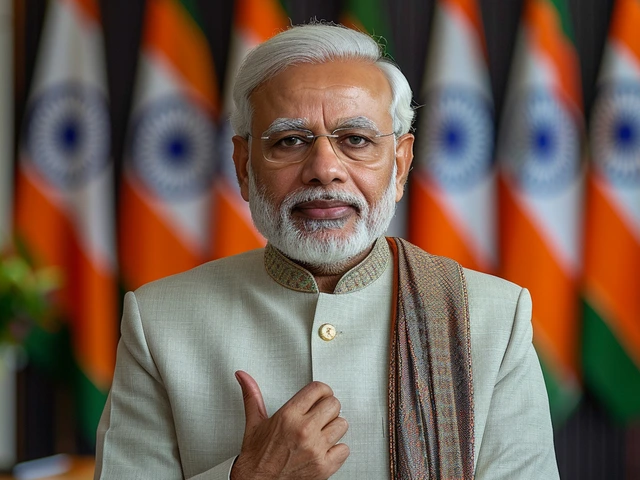
BJP Eyes Historic Win in 2024 Lok Sabha: Can They Cross the 400-Seat Mark?
The 2024 Lok Sabha election votes are being counted today, and the BJP led by Prime Minister Narendra Modi is expected to win by a landslide, echoing Congress' historic 1984 win. Their slogan 'abki baar, 400 paar' highlights the possibility of surpassing 400 seats, with exit polls pointing to a significant majority. Key battlegrounds include the Hindi heartland, South India, and Bengal.
Amy Paradise
October 3, 2025 AT 05:59Looks like the Malema case is finally moving after a long series of delays. The courts keep pushing back the judgment, which only fuels the supporters' chants outside. Legally, the distinction between a starter pistol and a live weapon could set a key precedent for future rallies. If the magistrate finally rules, it might tighten the Firearms Control Act enforcement across the board. Either way, the political fallout will be interesting to watch 😊.